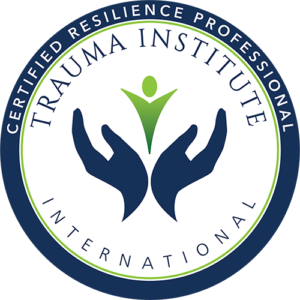You deserve the love and kindness that you give so easily to others.
Stepfamily life can be stressful. You might feel like you’re walking on eggshells and find yourself second-guessing something you said to your stepchildren or to your spouse. Did that come off the right way? Was that hurtful? Maybe I shouldn’t have said that. Ever woken up at night and started ruminating over something that happened earlier that day?
That’s where self-compassion comes in. If you get into the habit of practicing self-compassion, you’ll notice a difference in how you approach situations in your stepfamily. According to findings by Dr. Kristin Neff, a lead researcher on self-compassion, greater self-compassion reduces anxiety and depression.
What is Self-Compassion?
So you’ve probably heard of self-compassion, but what is it exactly? In simple terms, self-compassion is treating yourself as you would treat a good friend, especially in regards to your self-talk. A more in-depth definition includes three core elements: self-kindness, common humanity, and mindfulness. Pay special attention to how you treat yourself when you make a mistake. Do you have a harsh “inner critic” who is constantly berating you? Or are you supportive and encouraging when things don’t go as planned? Let’s take a look at examples for each of the core elements for someone who is practicing self-compassion.
The Three Core Elements of Self-Compassion
Self-kindness means not beating yourself up or being overly critical when you make a mistake. Instead, you are encouraging and supportive, just as you would be with a good friend. Yeah, it’s too bad that happened, but it’s not the end of the world. I was coming from a place of love and I meant well.
Common humanity is recognizing that everyone fails and makes mistakes at times. It’s what makes us human. Everyone says something that comes out wrong at times. It’s perfectly natural to slip up and say something, but I’m trying my best.
Mindfulness is being present in the moment and being aware of your thoughts and emotions, allowing yourself to feel those unpleasant feelings but not drowning in them. I feel bad about what I said. Of course I wish I hadn’t said it, but I did. I will apologize and explain myself tomorrow.
When we approach those tough moments with self-compassion, our emotional well-being improves. We don’t ruminate as much, and our relationships are stronger. We can handle situations with resilience, and over time, we are able to transform our lives.
For Further Reading
Neff, K., & Germer, C. (2018). The mindful self-compassion workbook: A proven way to accept yourself, build inner strength, and Thrive. Guilford Publications.
About the Author
Elizabeth Mosaidis is a Certified Resilience Professional through the Trauma Institute International. She is also a Stepfamily Foundation Certified Coach and an author. Her books are available here.

